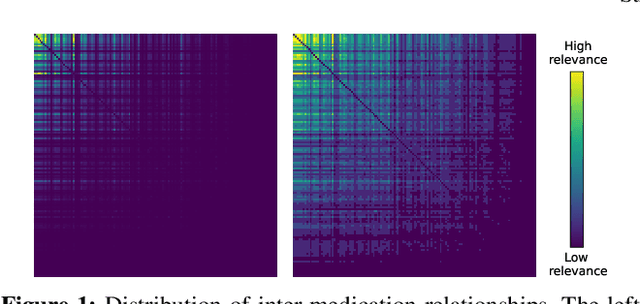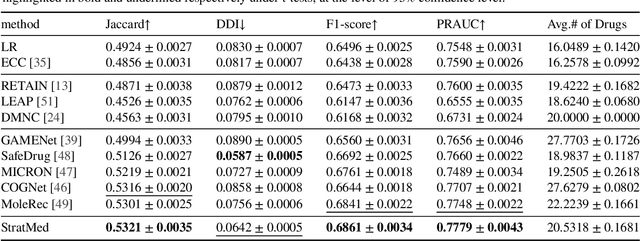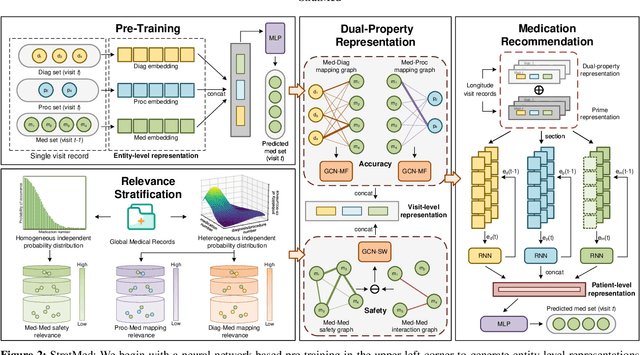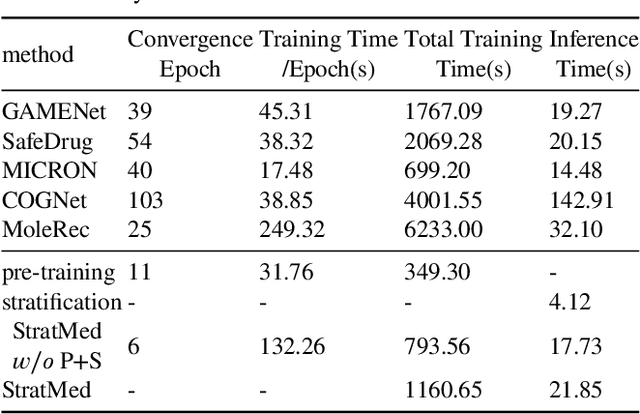StratMed: Relevance Stratification for Low-resource Medication Recommendation
Paper and Code
Sep 06, 2023



With the growing imbalance between limited medical resources and escalating demands, AI-based clinical tasks have become paramount. Medication recommendation, as a sub-domain, aims to amalgamate longitudinal patient history with medical knowledge, assisting physicians in prescribing safer and more accurate medication combinations. Existing methods overlook the inherent long-tail distribution in medical data, lacking balanced representation between head and tail data, which leads to sub-optimal model performance. To address this challenge, we introduce StratMed, a model that incorporates an innovative relevance stratification mechanism. It harmonizes discrepancies in data long-tail distribution and strikes a balance between the safety and accuracy of medication combinations. Specifically, we first construct a pre-training method using deep learning networks to obtain entity representation. After that, we design a pyramid-like data stratification method to obtain more generalized entity relationships by reinforcing the features of unpopular entities. Based on this relationship, we designed two graph structures to express medication precision and safety at the same level to obtain visit representations. Finally, the patient's historical clinical information is fitted to generate medication combinations for the current health condition. Experiments on the MIMIC-III dataset demonstrate that our method has outperformed current state-of-the-art methods in four evaluation metrics (including safety and accuracy).
 Add to Chrome
Add to Chrome Add to Firefox
Add to Firefox Add to Edge
Add to Edge